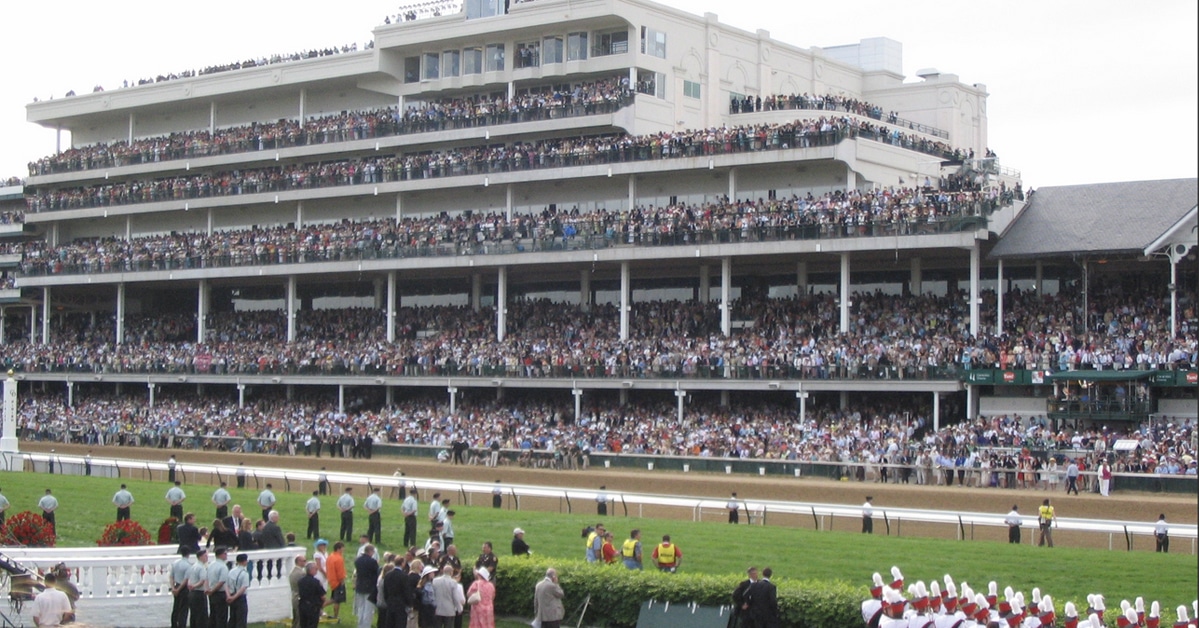One of the oldest worldwide popular sports is horse racing, which is a historical pastime associated with thundering hooves of noble thoroughbreds.
The excitement of the races and the splendors of the equine athletes hide another financial side of the old phenomenon. In this exploration, we delve into the vast financial dimensions of horse racing, aiming to answer the question that resonates with enthusiasts and curious onlookers alike: The question is how much is in horse gaming?
How Much Can You Win in a Horse Race?
Delving into the horse racing world and placing strategic bets on major races, horses, and events is a reliable way to win big. But just how much? If you just check the odds, you can already guess the average payout – the Kentucky Derby futures are a good place to begin. You can see that horse racing lines rates Fierceness at +1100 to win the event, and Dornoch trails slightly behind at +1600. This means that races that feature these horses are good races to place your winning bets.
Purses, or the financial lure of horse racing, may be most evident. Purses are not the same; some races are small with low winnings while some of the prestigious ones provide millions of dollars. Prestigious marquee events include the Kentucky Derby, the Grand National, and the Dubai World Cup, which offer huge purses.
The races are known to host the best thoroughbreds from top trainers and famous jockeys who compete for the large prize money.
Potential financial returns go beyond single race purses for owners and breeders. It includes breeding rights, stud fees and the increased value of a winning racehorse among others in a broader economic picture. Such a horse in a big race may prove to be extremely beneficial and lucrative, becoming a valuable asset in breeding programs that could yield even higher profits for its shareholders.
Horse racing wagering is a common practice worldwide and the bettors have chances of winning part of the pool stakes. The size of the pool is influenced by factors such as the popularity of the race, the number of competitors, and the kind of stakes made.
The victory in the Triple Crown brings not only recognition but also a considerable monetary profit. Consequently, winning the Triple Crown also comes up with associated bonuses, which makes it an envied achievement in equine racing.
Do Horse Racers Make a Lot of Money?
The large size of the horse racing track industry over the last 10 or so years has been in large part thanks to the exceptional horse racers. It’s been dwindling since 2012’s 5.48 billion to 2022’s 3.68 billion – but there are a variety of factors that have led to the downfall, not a lack in popularity by any means!
At the heart of this market are the horse racers.
The jockeys, who are the skillful riders on top of these magnificent horses get portion of purse winners of each race. This may be a large share or less, particularly in the reputable events. Furthermore, many purses in major events are substantial and contribute towards the earnings of winning riders generally. The expert riders straddling these magnificent animals are referred to as jockeys and receive a share of the purse winnings that accrue from each horse ride.
However, depending on the situation, the amount might vary, yet the best jockeys usually get handsome portions, particularly in special events.
Purses in big events may also be considerable and contribute substantially to the income of winning riders. For instance, some jockeys do bargain to be awarded bonuses or other kinds of incentives in their contract agreements, especially when they achieve victory in a very important race or attaining any particular goal. Jockeys’ pursuit of additional financial gains provides further impetus for constant excellence in performance.
Riders aren’t just an appendage. They are in charge of guiding the horse, and their own psychology is very important.
What Are the Most Popular Horse Racing Events?
Horse racing adds $122 billion to the US economy alone. Every year. The most popular events form a large fraction of this, which include:
1. The Kentucky Derby: “The Run for the Roses” (Churchill Downs, Louisville, Kentucky, USA)
2. The Grand National (Aintree Racecourse, Liverpool, England)
3. The Dubai World Cup (Meydan Racecourse, Dubai, UAE)
4. The Melbourne Cup (Flemington Racecourse, Melbourne, Australia)
5. The Prix de l’Arc de Triomphe (Longchamp Racecourse, Paris, France)
6. The Breeders’ Cup World Championships (rotates among various racetracks in the United States)
Wrapping Up
It is important to understand the financial aspect of the sport whether you are an experienced turf connoisseur or a casual observer because it makes appreciating the game deeper.
Each step taken on the track is a part of the tapestry of dollars and cents that make up the history of horse racing, one of the sports that will always influence the present-day society and economics.

